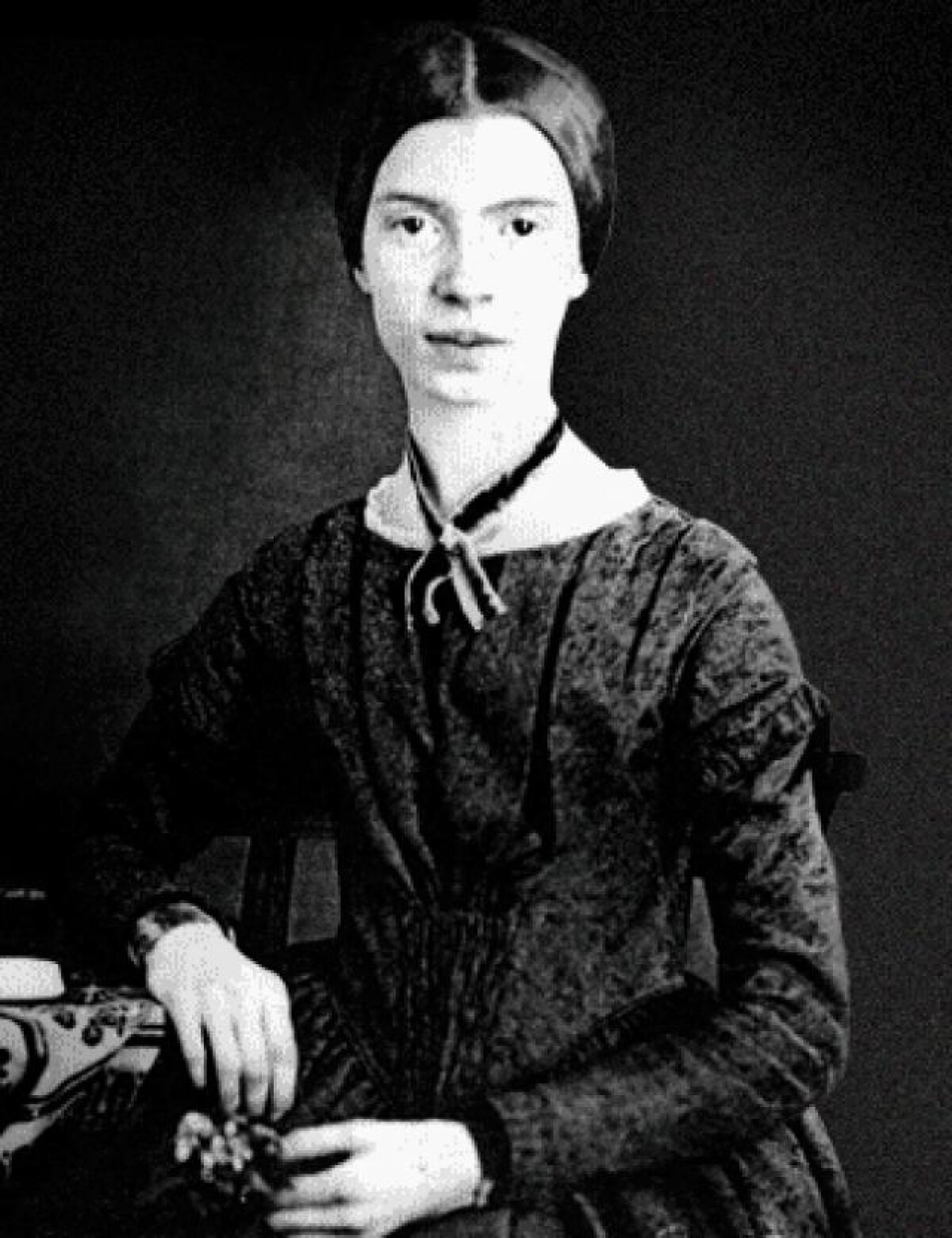Dickinson Emily
Emily Dickinson was a reclusive American poet. Unrecognized in her own time, Dickinson is known posthumously for her unusual use of form and syntax.
Emily Dickinson left school as a teenager to live a reclusive life on the family homestead. There, she filled notebooks with poetry and wrote hundreds of letters. Dickinson's remarkable work was published after her death—on May 15, 1886, in Amherst—and she is now considered one of the towering figures of American literature.
Emily Elizabeth Dickinson was born on December 10, 1830, in Amherst, Massachusetts. Her family had deep roots in New England. Her paternal grandfather, Samuel Dickinson, was well known as the founder of Amherst College. Her father worked at Amherst and served as a state legislator. He married Emily Norcross in 1828 and the couple had three children: William Austin, Lavinia Norcross and Emily.
Emily Dickinson was educated at Amherst Academy (now Amherst College) and the Mount Holyoke Female Seminary. She was an excellent student, despite missing long stretches of the school year due to frequent illness and depression. Though the precise reasons for Dickinson's final departure from the academy in 1848 are unknown, it is believed that her fragile emotional state probably played a role.
Dickinson began writing as a teenager. Her early influences include Leonard Humphrey, principal of Amherst Academy, and a family friend named Benjamin Franklin Newton. Newton introduced Dickinson to the poetry of William Wordsworth, who also served as an inspiration to the young writer. In 1855, Dickinson ventured outside of Amherst, as far as Philadelphia, Pennsylvania. There, she befriended a minister named Charles Wadsworth, who would become a cherished correspondent.
Among her peers, Dickinson's closest friend and adviser was a woman named Susan Gilbert. In 1856, Gilbert married Dickinson's brother, William Austin Dickinson. All of the Dickinson siblings, as well as Gilbert, lived on the large Dickinson Homestead in Amherst, and Emily served as chief caregiver for their ailing mother from the mid-1850s until her death in 1882.
Dickinson's seclusion during this period was probably partly due to her responsibilities as guardian of her sick mother. Scholars have also speculated that she suffered from conditions such as agoraphobia, depression and/or anxiety. It was also during this time that Dickinson was most productive as a poet, filling notebooks with verse without any awareness on the part of her family members. In her spare time, Dickinson studied botany and compiled a vast herbarium. She also maintained correspondence with a variety of contacts. One of her friendships, with Judge Otis Phillips Lord, seems to have developed into a romance before Lord's death in 1884.
Dickinson died of kidney disease in Amherst, Massachusetts, on May 15, 1886. She is buried on the family Homestead, which is now a museum.
Little of Dickinson's work was published at the time of her death, and the few works that were published were edited and altered to adhere to conventional standards of the time. Unfortunately, much of the power of Dickinson's unusual use of syntax and form was lost in the alteration. After her sister's death, Lavinia Dickinson discovered hundreds of her poems in notebooks that Emily had filled over the years. The first volume of these poems was published in 1890, with additional volumes following. A full compilation, The Poems of Emily Dickinson, wasn't published until 1955.
Emily Dickinson's stature as a writer soared from the first publication of her poems in their intended form. She is known for her poignant and compressed verse, which profoundly influenced the direction of 20th century poetry. The strength of her literary voice, as well as her reclusive and eccentric life, contributes to the sense of Dickinson as an indelible American character.
Share:









